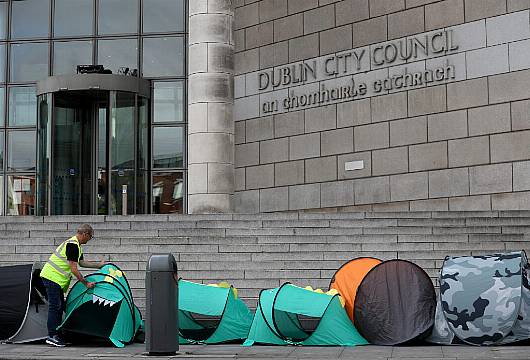A growing number of English-language students are being forced to sleep on the streets, in cars, or on couches in friends’ homes because they cannot find rental accommodation after travelling to Ireland.
As the Irish Examiner reports, Some are opting to return home without completing their courses or transferring to other countries because they couldn’t find, or afford, a place to live.
One student recently spent two nights sleeping on the streets in Cork city centre because the hostel he had been staying in was booked out for a weekend. Sebastian Carvallo Farina, from Chile, is now couch surfing.
Another student in Dublin bought an old car for €800 to sleep in because it was her only option. She is now sleeping on a couch in the home of an acquaintance.
Students across the third-level sector have been hit by the perfect storm of rising rents, a shortage of accommodation, Covid, and the soaring cost of living, with student welfare groups reporting that hundreds were deferring until next year.
But the accommodation crisis is hitting international students hardest. A study in February by the Irish Council for International Students (ICOS) found half of students are sharing a room with three or more people. One in 10 are forced to share a room with six or more people. Only one in 10 had their own room.
The latest rent report from Daft for the first quarter of 2022 found there were fewer than 1,400 properties to rent nationally at the beginning of February. In Dublin, there were just 712 properties available, the lowest level since Daft’s records began in 2006.
The number of properties was also at an all-time low in Munster. The average rent on Daft was €1,524 nationally at the end of 2021, a rise of more than 10% over the year.
According to the Department of Justice, 11,747 visas were granted last year for courses including secondary level, English language, and third-level courses up to and including PhD.
This was up from 7,821 in 2020, when such courses were heavily hit by the pandemic. In 2019, the year prior to the pandemic, 17,217 such visas were granted. Up to the end of March this year, 2,662 visas were granted.







